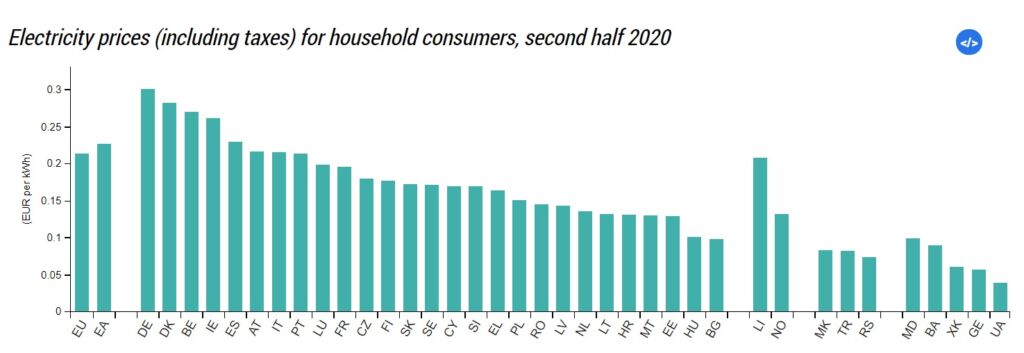‘Renewable’ darling Germany faces electricity shortage
Minnesota lawmakers often speak fondly of German energy policy, but the country’s decision to shutter its nuclear power plants and instead rely upon wind and solar is setting the nation up for blackouts, according to a report from Bloomberg.
By 2023, the margin of supply over peak demand is expected to plunge to 3%, or two gigawatts, from 26% before the pandemic, according to BNEF.
Germans, like Californians and Texans, are paying more and more money for a grid that is less reliable. Bloomberg notes:
A supply squeeze would send power prices soaring for the many thousands of companies that make up the backbone of the economy. Wholesale rates have already jumped almost 60 percent this year to their highest level since 2008. That increase will feed through to the nation’s 40 million homes already paying the highest bills in the European Union, partly to fund the energy transition.
Texans saw their electric bills surge as a result of the Polar Vortex of 2021, where electricity prices surged as demand dwindled. The graph below clearly shows that Germany already has the highest electricity prices in Europe, and these prices will continue to rise as the country foolishly closes reliable nuclear and coal plants and relies upon weather-dependent renewables.

Unfortunately, it appears Germany is still in denial about how its rush to renewable is affecting the reliability of its electric grid.
The decisions to exit nuclear, and coal were preceded by careful research, said a spokesman at energy regulator Bnetza. “The security of electricity supply is regularly examined.”
It is hard to imagine this energy regulator believes what he is saying. The decision to close Germany’s nuclear plants was not preceded by careful research; it was a knee-jerk reaction to the Tsunami that affected the Fukushima plant in Japan. The results are predictably bad.
Germany’s economy is starting to suffer, and blackouts would make the blow even worse:
In the state of Rhineland-Palatinate, once home to two nuclear plants, the head of chemicals company Berger-Lacke GmbH rues the closures and worries about future supplies.
“Blackouts is one of the biggest risks we face,” said Thomas M. Adam. “Even a couple of days without stable power supply would be very serious.”
In the meantime, Germany may have to rely more on neighboring markets for imports. But the closure of fossil-fuel plants in other nations too means that availability could be limited during harsh winters, just when the power is needed the most, according to BNEF analyst Andreas Gandolfo. “During a collective crunch, Germany could find itself in a tight spot.”
Germany will soon be the poster child for what not to do in energy policy. Hopefully, Minnesota legislators will still be interested in their taking taxpayer-funded trips to Germany to learn about Germany’s electric grid after the blackouts. They could actually learn something useful.